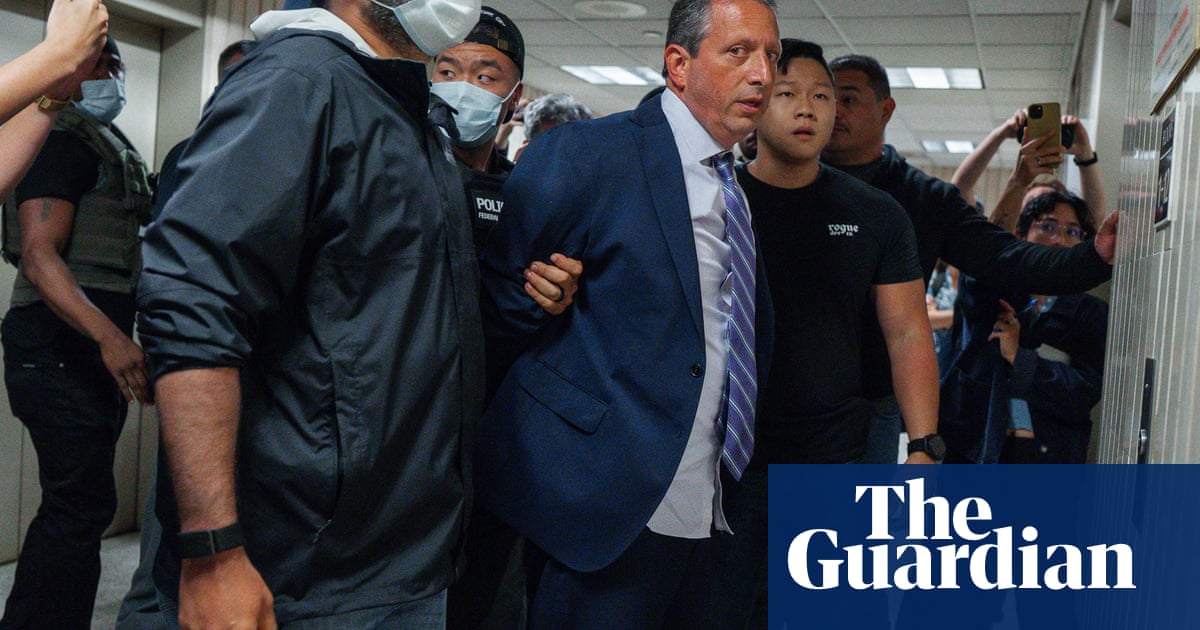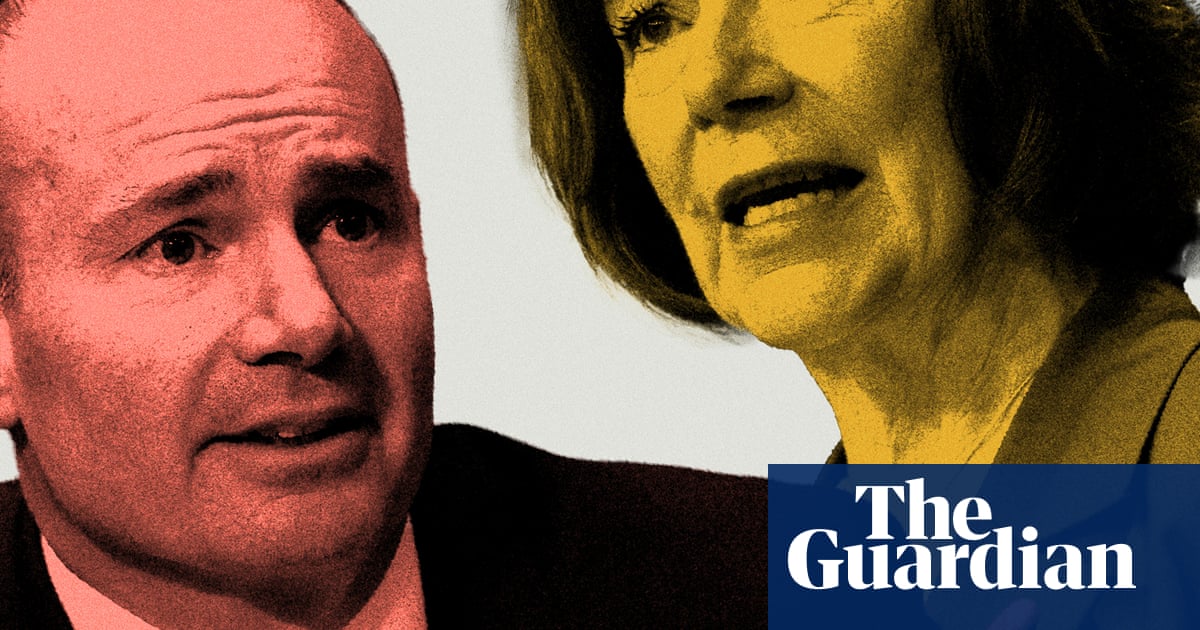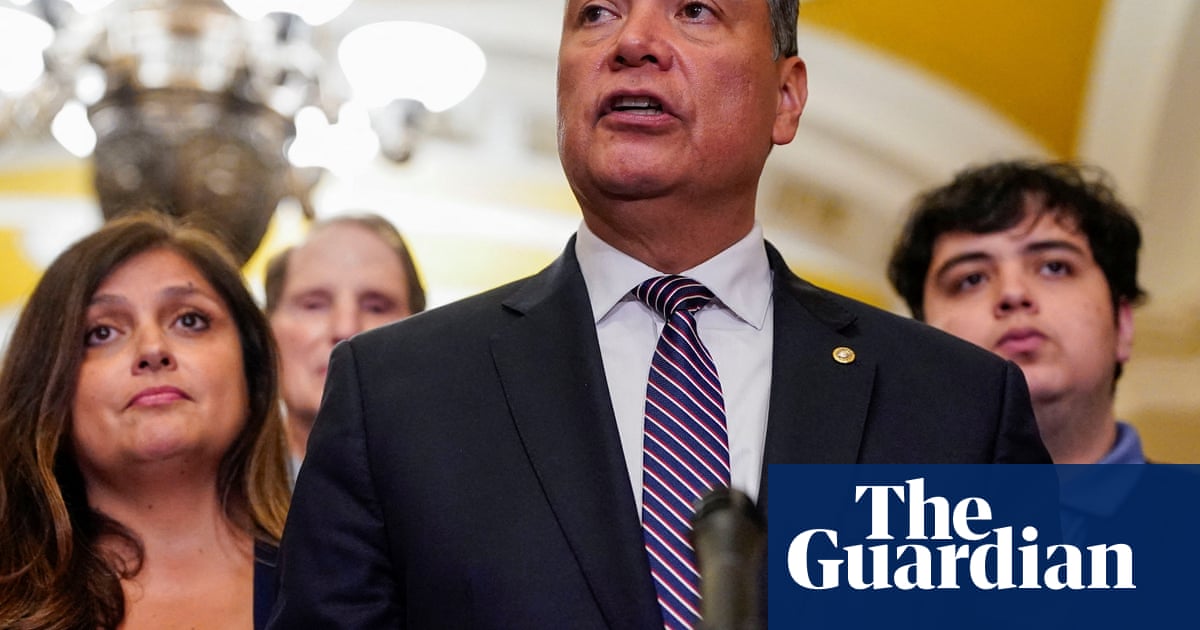Florida Democrat Josh Weil, the once little-known progressive teacher who stunned the political world in March by raising nearly $14 million for a failed congressional special election bid, is now running to become the Sunshine State’s next senator.
Weil is the first major Democratic candidate to file for the 2026 Senate race. “I'll be everywhere,” Weil said of his planned campaign tour across the state, which kicks off Wednesday at a veterans center in conservative Clay County.
By entering the race, Weil hopes to replace Sen. Ashley Moody, a Republican selected by Gov. Ron DeSantis in January to replace Marco Rubio once he became secretary of State.
Moody, a former state attorney general who shares a close relationship with U.S. Attorney General Pam Bondi, brought in $1.2 million through her joint fundraising committee and raised roughly $400,000 in her campaign account during the first three months of this year for the 2026 election. She has yet to attract a serious primary challenger.
She also has brought together a campaign apparatus that looks similar to the team that helped Donald Trump to victory in 2024, one that includes pollster Tony Fabrizio and former Trump campaign co-chair Chris LaCivita at a super PAC supporting her election. Her ties to key players in the Trump orbit are a sign the president is unlikely to support a challenger during the GOP primary, even though DeSantis picked Moody without asking for Trump’s permission or blessing.
Trump’s involvement in the state he calls home could make Weil’s Senate bid more difficult. He previously sought the Democratic nomination for Senate during the 2022 cycle, but lost to former Rep. Val Demings — who went on to lose to Rubio by 16 points despite massively outfundraising him. Weil said that in the next 17 months Trump’s favorability could fall, even in Florida, citing his tariff announcements as an example.
“By this time next year,” Weil said, “we could see Ashley Moody trying to distance herself from Trump to save her political campaign.”
The House seat Weil ran for in April opened up after Mike Waltz joined the Trump administration as national security adviser, only to be mired in a messaging scandal months later that resulted in Trump instead nominating him to be confirmed as the next U.N. ambassador. Republican Randy Fine, a former state legislator, won that race by 14 points.
But because Trump and DeSantis both won those areas by more than 30 points in 2024 and 2022, respectively, Democrats said they viewed their overperformance as a backlash to Trump. Much of Weil’s fundraising during that election came from small-dollar donors outside Florida, including through targeted texts and emails, as well as social media ads.
It’s not clear the same fundraising machine will bear out for Weil in 2026. The special election was one of the few federal contests giving Democrats an early opportunity to fundraise against Trump, particularly given a narrow GOP House majority. Weil said he expected the Senate race to be a $100 million contest — a total that’s typical for competitive races in Florida but that has become less frequent in recent cycles as the state has become more red.
“We built a massive fundraising infrastructure,” Weil said of the April election. “We firmly believe that we have the largest data bank and fundraising infrastructure in the country right now, and so applying the practices that we did with the data we have, at the level we did, is going to bear out pretty consistent results.”
He pledged to put 10 cents on every dollar he raised toward voter registration, where Republicans have a 1.3-million-person edge, and committed to paying all his campaign staff well.
Weil, who teaches math and science, said he’d expected voters would mostly want to talk to him about Trump’s plans to abolish the Department of Education during his special election run. But he soon found that affordability topped their list of concerns. He’s a supporter of Medicare for All, which would abolish private health insurance in favor of covering everyone living in the U.S. under a single, government-funded plan.
“It's not going to come from Tallahassee,” Weil said of reforms needed, “and voters want someone who will fight for them in Washington to help solve these issues.”

 German (DE)
German (DE)  English (US)
English (US)  Spanish (ES)
Spanish (ES)  French (FR)
French (FR)  Hindi (IN)
Hindi (IN)  Italian (IT)
Italian (IT)  Russian (RU)
Russian (RU) 























Comments